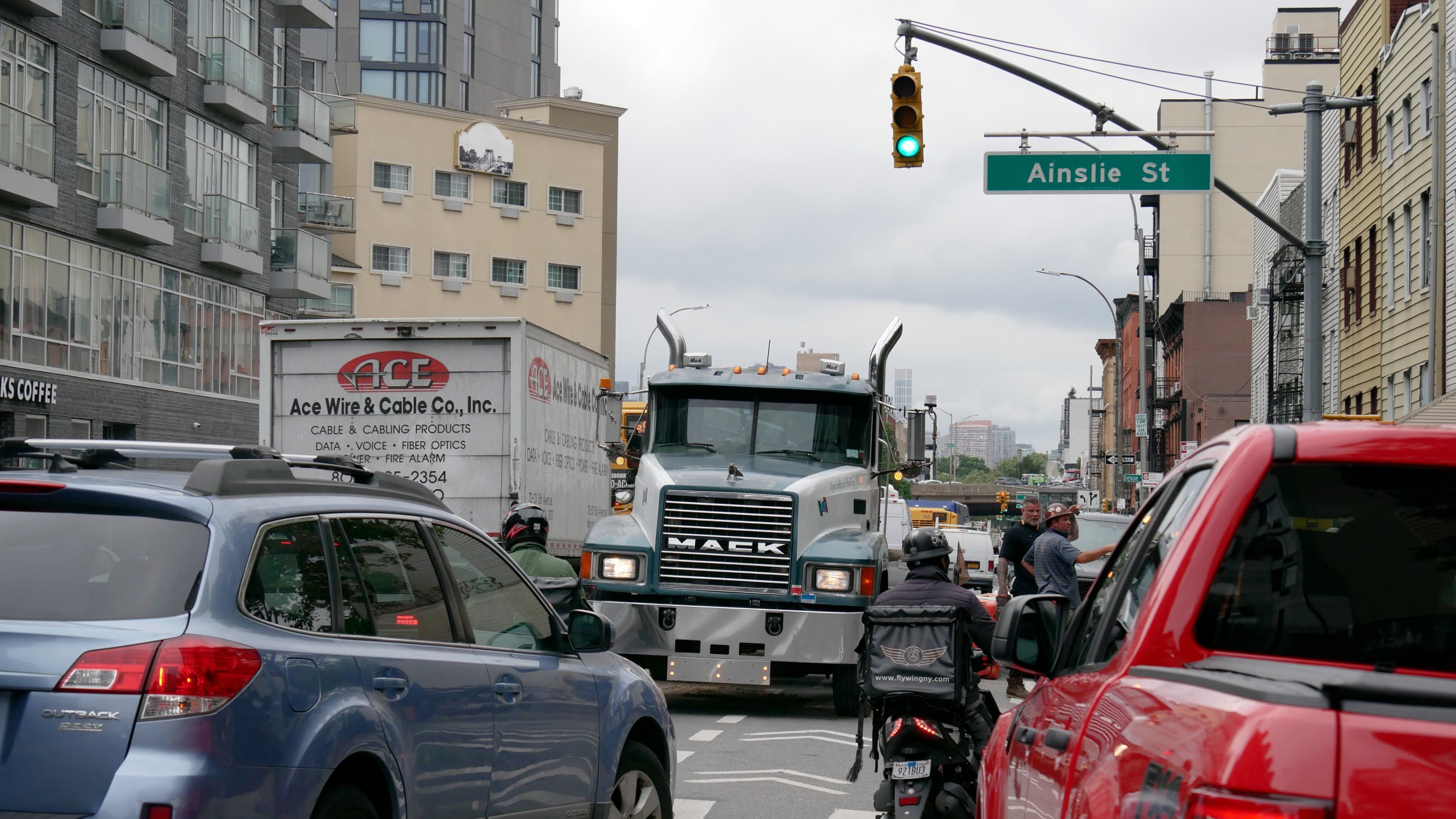The Department of Transportation missed its Council-mandated deadline for release a report about a crucial redesign of the city's outdated truck routes, angering community leaders in neighborhoods suffering from freight traffic who were looking forward to the report as a first step towards change.
As part of a 2023 law, the DOT was supposed to "publish ... a report on the redesign of the city truck route network" no later than Sept. 15, but that day came and went with no update or synopsis of the more than 2,000 public comments the agency received this summer on trucks.
The law's sponsor, Council Member Alexa Avilés (D- Sunset Park), said her community experienced an increase in freight traffic due to the explosion of e-commerce that occurred during Covid-19. Her district is now home to many "last-mile" warehouses.
The Aviles-written law mandates that DOT release a report based on the public comments, which showed mounting anxiety about basic safety. The plurality of comments — roughly 36 percent — mentioned dangerous conflicts between trucks and pedestrians or between trucks and cyclists.
The DOT claimed that it missed its deadline because it had extended the public comment period by one month. Now the agency only says it "hopes" to release the final report this year.
“Based on requests from elected officials and community organizations, DOT extended its public comment period to solicit more feedback from the community on how we can modernize our truck network," agency spokesman Vin Barone said.
Nonprofit organizations that operate in areas with high truck traffic say the redesign is already overdue, citing struggles with health issues from continued pollution as reason for an updated network.
"It is common knowledge that the current system exposes low-income communities of color to harmful air pollution, contributing to elevated rates of asthma and respiratory issues," Elizabeth Yeampierre, executive director of UPROSE, a Sunset Park environmental justice nonprofit, told Streetsblog via email. "A just redesign must prioritize reducing truck traffic on residential streets, shifting freight routes away from schools and parks, and promoting the use of clean energy alternatives like electric trucks."
Feedback on the map was sparse in areas with high truck traffic, like Hunts Point in the Bronx and the entirety of Staten Island, suggesting low levels of community engagement. Community boards in Staten Island and the South Bronx told Streetsblog that the DOT never made a presentation or followed up on its initial email about the map.
Some organizations want to see even more public information engagement, especially if the report is going to be delayed.
“We worked this summer with our communities to include their comments in the Truck Network Redesign feedback portal and are committed to continuing to advocate for our communities' involvement in the redesign process,” said Maria Fernanda Pulido-Velosa, an organizer at El Puente, an environmental justice organization in South Williamsburg. “If there is a delay in publishing the report to get more public input we call on DOT to make an official announcement as soon as possible, reopen the feedback portal, and conduct genuine, meaningful engagement with environmental justice groups in any further public comment periods.”
The DOT plans to conduct additional engagement this summer, a spokespeerson for the organization told Streetsblog after publication.
Experts see redesigning the dated network as the first step in addressing the city's growing freight volumes. The network redesign, coupled with increased use of micro mobility for the "last mile," off hour delivery, and blue highways (using the cities major waterways to move more packages), can all help to take some of the burden off communities in manufacturing zones.
On Tuesday, the Transportation Department announced progress on its "microhubs" pilot program, which will create zones where delivery trucks can offload and sort goods and dispatch micro mobility devices get packages to the final destination. The agency will open 20 microhub pilots, the first three will be in Clinton Hill, Williamsburg, and the Upper West Side. Today, the DOT put out the proposed rules to change parking regulations for the new zones. There will be a public hearing on the rule change on Oct. 17.






